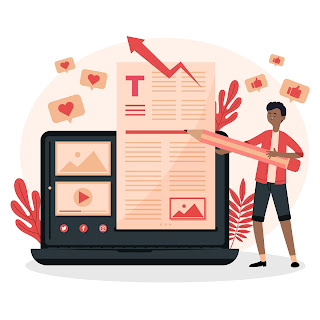In the digital realm, every click, scroll, and search query provides valuable insights into the minds of consumers. Understanding the psychology behind user behavior is essential for crafting effective Search Engine Optimization (SEO) strategies that resonate with your target audience and drive meaningful engagement. Join us as we explore the fascinating intersection of psychology and SEO and uncover actionable strategies to optimize your website for human behavior.
1. The Power of Intent: Decoding User Search Queries
At the heart of every search query lies a unique intent—a desire for information, a need for a solution, or a quest for inspiration. By understanding the underlying motivations behind user search queries, you can tailor your content to meet their needs and provide valuable answers to their questions. Whether it's informational, navigational, or transactional intent, aligning your content with user intent is key to capturing organic traffic and driving conversions.
2. The Influence of Emotion: Creating Connection Through Content
Emotions play a significant role in shaping user behavior and decision-making processes. Content that evokes emotion—whether it's joy, surprise, fear, or nostalgia—has the power to captivate audiences and forge meaningful connections with your brand. By tapping into the emotional drivers of your target audience and crafting content that resonates with their feelings and experiences, you can foster deeper engagement and loyalty, ultimately driving higher rankings and conversions.
3. Cognitive Biases and Decision-Making: Leveraging Psychological Triggers
Human decision-making is often influenced by cognitive biases—subconscious patterns of thinking that can lead to irrational judgments and behaviors. By understanding these cognitive biases and leveraging psychological triggers in your content and design, you can influence user perceptions and actions in your favor. From social proof and scarcity to reciprocity and authority, incorporating persuasive elements into your website can enhance user trust, credibility, and engagement.
4. The Importance of User Experience (UX): Designing for Delight
User experience (UX) plays a critical role in shaping user perceptions of your website and brand. A well-designed, intuitive website not only enhances usability and accessibility but also fosters positive associations and emotional connections with your audience. By prioritizing elements such as clear navigation, fast load times, and mobile responsiveness, you can create a seamless and enjoyable browsing experience that keeps users coming back for more, ultimately boosting your SEO performance.
5. Personalization and Relevance: Tailoring Content for Individual Needs
In an age of information overload, personalized content is king. By leveraging data analytics and user insights, you can tailor your content to meet the unique preferences and interests of individual users. From personalized recommendations and dynamic content to targeted messaging and adaptive design, personalization allows you to deliver relevant, timely experiences that resonate with your audience on a deeper level, driving higher engagement and conversions.
Conclusion: Bridging the Gap Between Psychology and SEO
In conclusion, understanding the psychology of search is essential for crafting effective SEO strategies that resonate with your target audience and drive meaningful engagement. By tapping into the power of intent, emotion, cognitive biases, user experience, and personalization, you can create compelling, user-centric experiences that not only boost your website's visibility and rankings but also foster lasting connections with your audience. Ready to unlock the full potential of psychology-driven SEO? Let's embark on this journey together and elevate your online presence to new heights.




Comments
Post a Comment